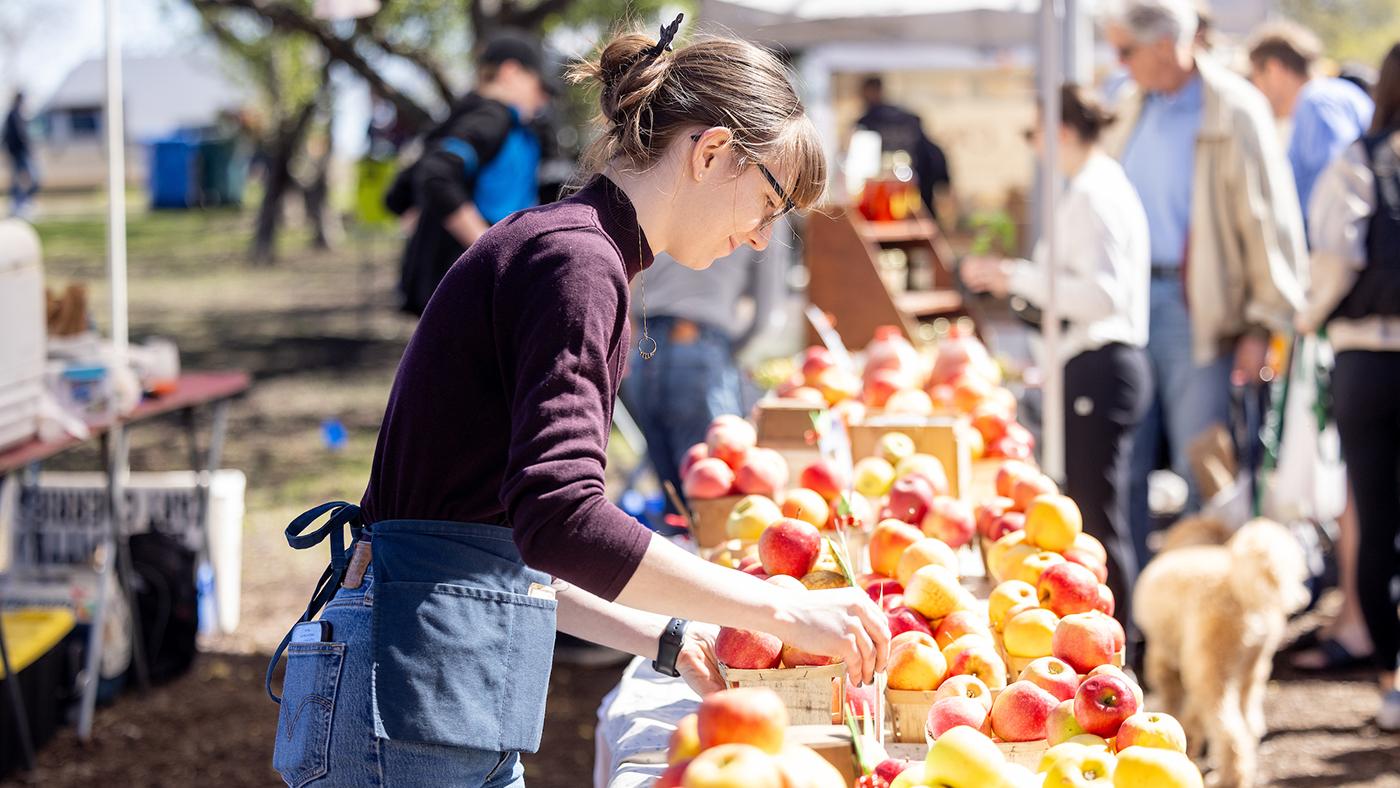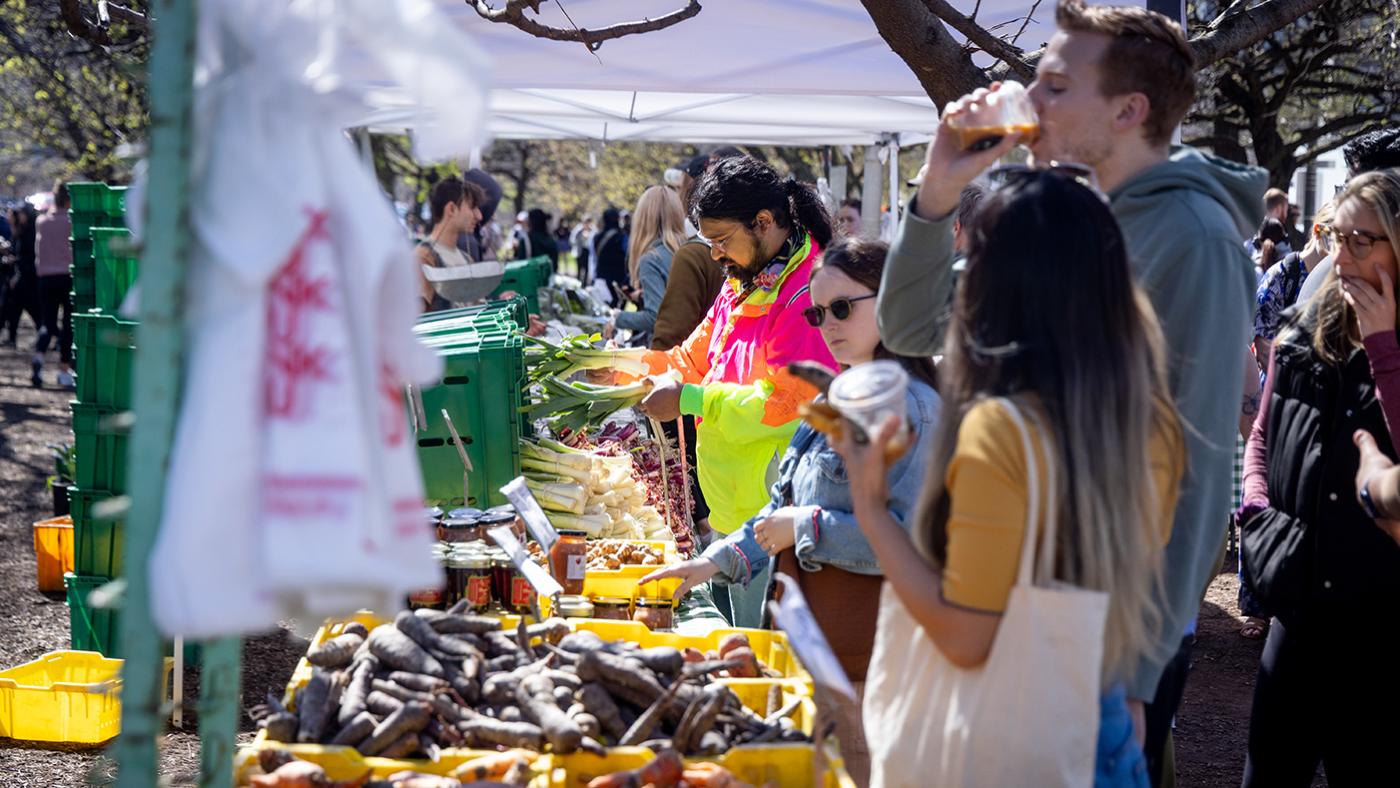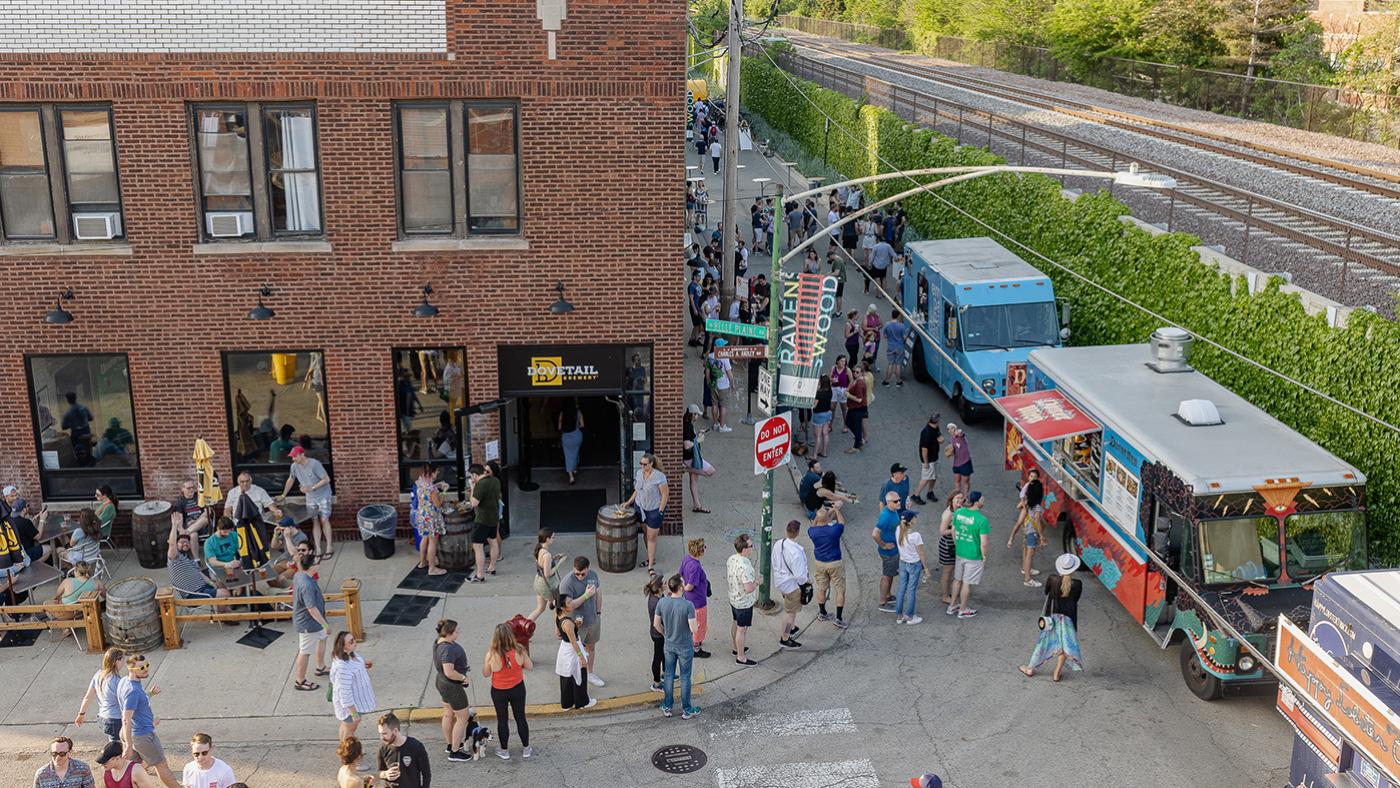For Chicago Mushroom Producer, Fungi Have Untapped Human and Environmental Benefits
Meredith Francis
July 27, 2023
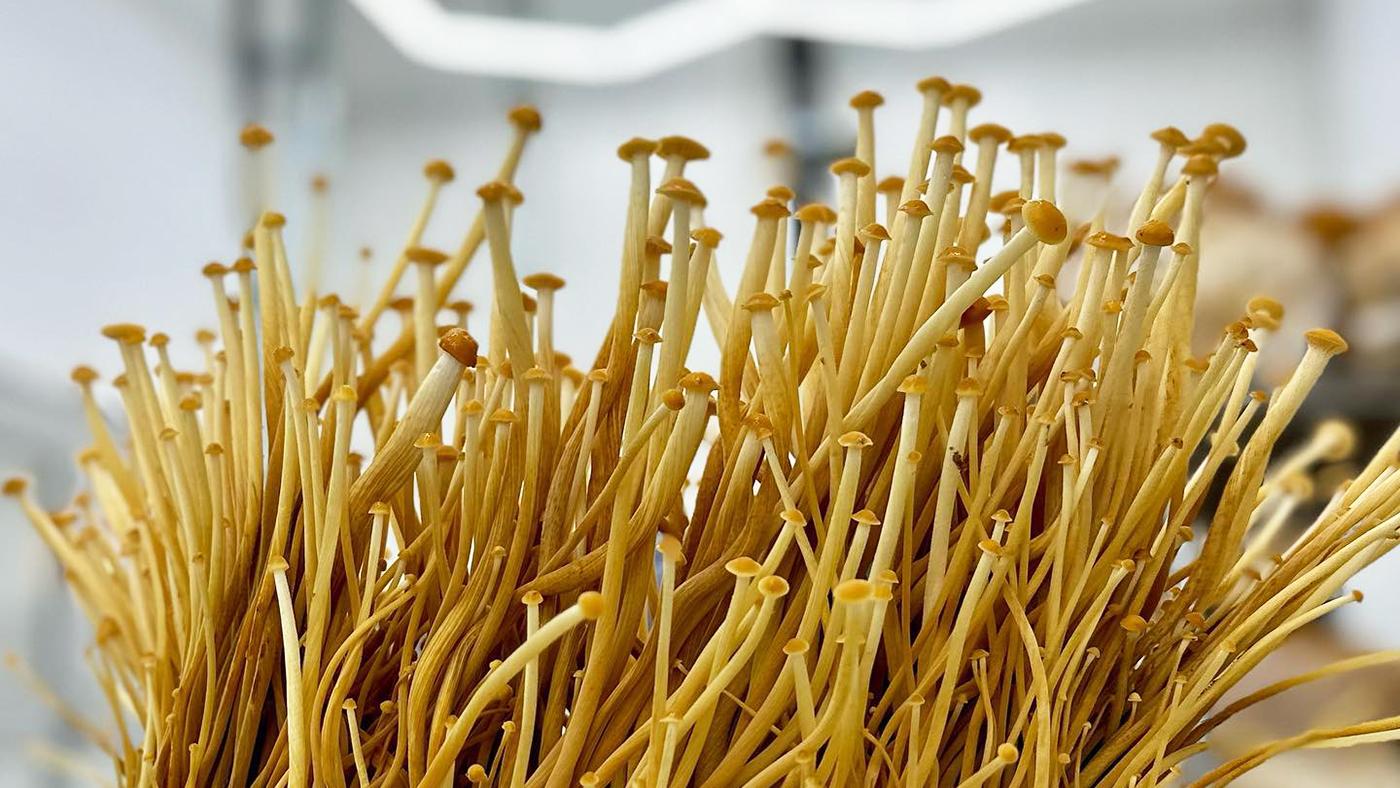
Get more recipes, food news, and stories by signing up for our Deep Dish newsletter.
On his long drives between home in the northern suburbs and the University of Illinois Urbana-Champaign where he studied biology, Joe Weber noticed just how much of the land was made up of “corn, soybeans, or dirt.” Farmland, in other words.
“I would just think about what this ecosystem used to look like, and what this landscape could potentially hold again,” Weber says.
Some 75 percent of the land area in Illinois is farmland. And while farming is an obvious necessity, some, including Weber, warn of the environmental impacts of industrialized monocrop agriculture, including soil erosion, a decrease in biodiversity, and an increase in carbon emissions.
One day, Weber listened to a podcast about mushrooms and their human and ecological benefits, and that was his “a-ha” moment: he wanted to produce mushrooms.
“The food system is one of the main levers that we have to fix our ecology as well as our human health,” says Weber, who thinks the nutrient-packed mushroom is a potential force behind that lever.
In 2019, he founded wholesale company Four Star Mushrooms. (The name came last, he said, and is a tip-of-the-hat to Chicago’s four-star flag. Though, for obvious reasons, their company logo swaps out the stars with little mushrooms).
What started as a small facility in Logan Square has grown into a larger one near the United Center, where they also have plans in the works for a retail storefront. He and his business partner, Sean DiGioia, plus eight other employees steer the fungi-focused ship. It’s a family business, too: Weber’s dad serves as a kind of business mentor, and his mom helps out with the accounting.
Roughly 90 percent of their revenue comes from direct sales of their mushrooms to restaurants, including popular and high-end eateries such as Avec in River North and Publican Quality Bread. They also sell to hotels, country clubs, and even senior living facilities in Chicago and the suburbs.
But why, of all the foods out there, did mushrooms call out to Weber? For starters, they’re an interesting organism.
“They're part of the fungal kingdom. So they're not even related to plants. They're actually more related to animals than they are to plants,” Weber says.
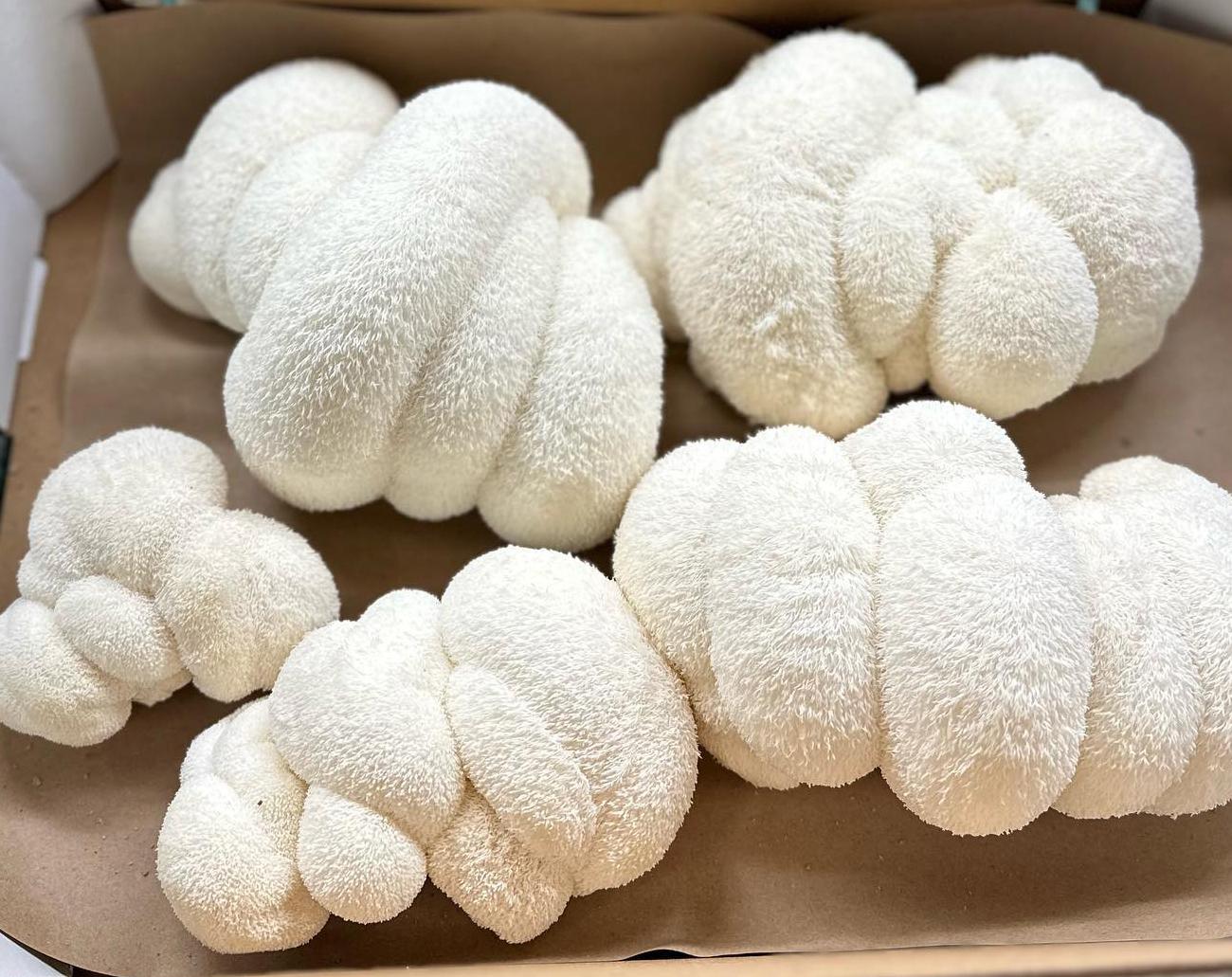 Lion's mane mushrooms are among Four Star Mushrooms' seven varieties. Image: Courtesy of Four Star Mushrooms / Facebook
Lion's mane mushrooms are among Four Star Mushrooms' seven varieties. Image: Courtesy of Four Star Mushrooms / Facebook
Weber touts the myriad health benefits of the fungi, too. They are low-calorie yet packed with nutrients such as protein and Vitamin D. Some contain a soluble fiber called beta-glucans that work as an immunomodulator, meaning they help the human immune system work more effectively. Other varieties, such as lion’s mane mushrooms, have had some documented positive effects that can benefit people with neurological disorders like Parkinson’s, multiple sclerosis, and Alzheimer’s.
“It's really exciting that we're growing food that also truly is medicine,” he says.
Speaking of varieties, Weber says his company is going beyond the kind of mushrooms you might find at the grocery store, such as white button, cremini, and portabella. They’re growing lion’s mane, chestnut, black oyster, blue oyster, maitake, golden enoki, and king trumpet mushrooms.
“There’s just been a massive consolidation to grow basically the same exact mushroom,” says Weber of the standard, store-bought varieties. “Most of our mushrooms would be considered speciality, exotic, or gourmet.”
For Weber, his passion for the environment is inextricably linked to his enthusiasm for growing mushrooms. Because fungi feed on organic waste matter, mushrooms fit well into the natural waste cycle of other types of farming. Four Star Mushrooms grows their products on waste from other industries, such as spent brewery grains or coffee grounds, plus other kinds of waste.
“For instance, right now we grow on redwood sawdust, which is a waste stream from the lumber industry, and then soybean hulls, which is a waste stream from the agriculture industry,” Weber says. “Both of these things are organic waste streams that, if they’re not used for something else, eventually end up in a landfill, which is just going to emit greenhouse gasses.”
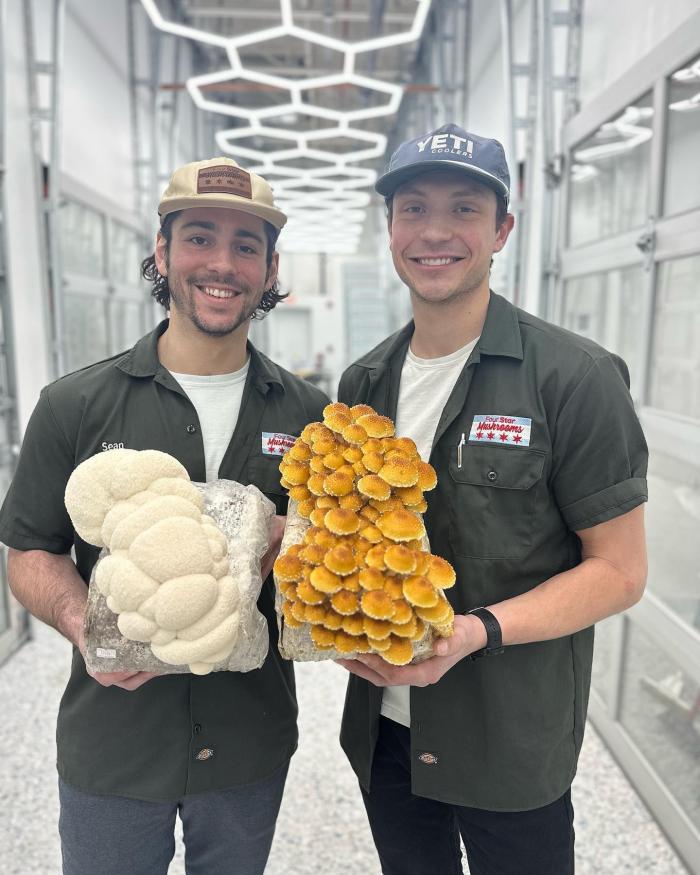 Sean DiGioia, left, and Joe Weber. Image: Courtesy of Four Star Mushrooms / Facebook
Sean DiGioia, left, and Joe Weber. Image: Courtesy of Four Star Mushrooms / Facebook
Their own waste can be turned into compost or “soil amendment” (a.k.a. material added to soil to improve it), so they work with nearby farms, local urban farms, and even at-home gardeners to use the mushrooms’ waste byproducts to improve their own farms and gardens. Sprucing up soil is a good thing, as soil erosion is a problem for farmers and can lead to less fertile soil, a smaller yield, and less income for farmers.
“As climate change becomes more impactful—and I know farmers in the Midwest that are just reeling from drought or high heat or too much rain … it’s just a telltale sign that we need to be growing more resource-efficient and nutrient-dense food indoors in and around urban areas, and that’s one of our main objectives,” Weber says.
Four Star Mushrooms uses controlled environment agriculture (CEA), which is a lot like it sounds—growing inside a facility in which the producer can manage things like temperature, humidity, and other variables. He points to companies like Mighty Vine on Chicago’s North Side, or Gotham Greens in Brooklyn as examples of CEA. With the carefully fine-tuned environment at Four Star Mushrooms, Weber says they can grow their products really fast.
“From the point that we put a block of our substrate in one of the grow rooms to the point that we’re harvesting and delivering it, it can be as short as six to seven days.”
Weber says that while growing mushrooms indoors certainly isn’t a new concept, they’ve engineered their building to make the conditions ideal for their fungi. They have 17 different grow rooms in their facility, which are kept between 57 and 62 degrees. Weber says the conditions are “like it's just after a rainfall in September.”
They’ve worked with engineers to have systems in their building that can control air, temperature, carbon dioxide, light, and humidity. Though, according to Weber, being able to control the environment doesn’t necessarily make the process any easier. For example, the building’s humidifier works a lot harder in January, and the cooling system works very hard on hot summer days.
Despite the challenges, Weber hopes that more and more people will turn to CEA, urban farming, and regenerative agriculture in the future, especially as the average age of farmers continues to get higher. According to the U.S. Department of Agriculture, the average farmer is 57 years old. But Weber says he has seen a younger cohort of people who are emphasizing sustainable ways of growing food that are good for both people and the land. That gives him hope that environmentally conscious farming methods, more nutrient-rich foods, and a stronger connection between people and their food will take root.
“Between controlled environment agriculture and regenerative agriculture, those two things seem to be what we need to start to fix our food system and also fix the situation that we're in with our greenhouse gas emissions,” Weber says. “We hope that we can be a really strong partner for anybody that's doing any sort of regenerative agriculture, whether it's on 800 acres or whether it's on the city lot. I think every scale is meaningful.”

